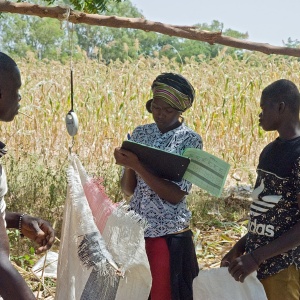
This paper examines the role that agricultural research and innovation has in changing the food systems of developing regions, including urbanisation, decline in the importance of cereals in the diet, rise in processed foods, and shift in types of grains produced. Ways in which research affects the food system include: new breeds and varieties that are suited to small farms and/or ease of processing; cheaper inputs such as irrigation, fertilisers, herbicides and tractors; and introduction of motorised transport and temperature controlled storage. The authors call for more investment in the post-farm stages of the food system, such as processing, logistics, and wholesale, because these stages add significant value to food products.
Abstract
Developing regions' food system has transformed rapidly in the past several decades. The food system is the dendritic cluster of R&D value chains, and the value chains linking input suppliers to farmers, and farmers upstream to wholesalers and processors midstream, to retailers then consumers downstream. We analyze the transformation in terms of these value chains' structure and conduct, and the effects of changes in those on its performance in terms of impacts on consumers and farmers, as well as the efficiency of and waste in the overall chain. We highlight the role of, and implications for agricultural research, viewed broadly as farm technology as well as research pertaining to all aspects of input and output value chains.
Reference
Reardon, T., Echeverria, R., Berdegué, J., Minten, B., Liverpool-Tasie, S., Tschirley, D. and Zilberman, D., 2018. Rapid transformation of food systems in developing regions: Highlighting the role of agricultural research & innovations. Agricultural Systems, In Press.
Read the full paper here. See also the Foodsource resource How does food interface with societal and health concerns?







Post a new comment »